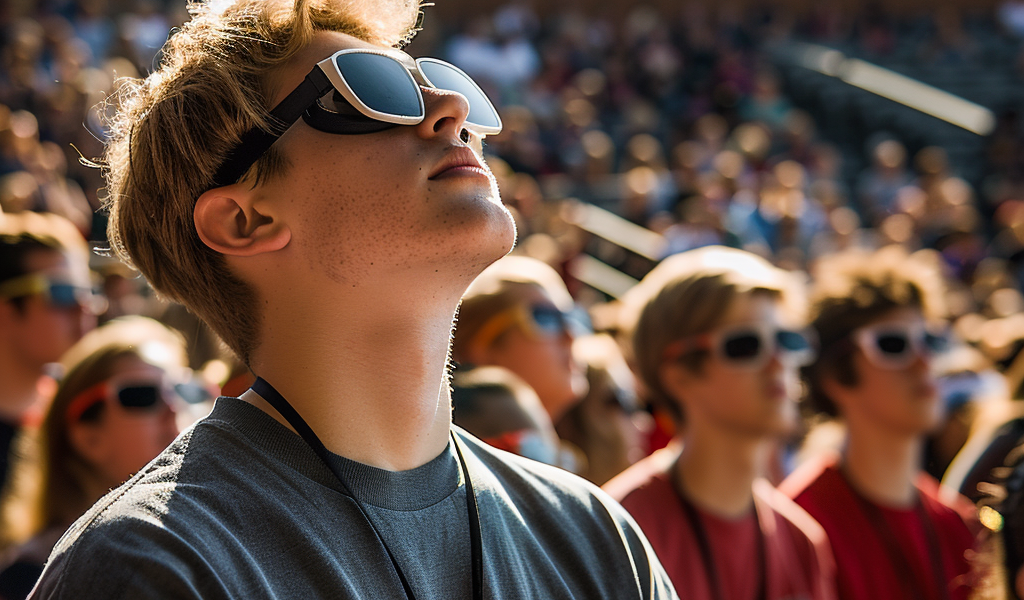On Monday, April 8, a partial eclipse of the sun will be visible on the U of A campus, and for much of the state of Arkansas, a total eclipse will occur. Approximately 1.5 million individuals are projected to journey to the state to witness the eclipse, and many are expected in the Northwest Arkansas area.
The moon will partially eclipse the sun from 12:32 p.m. to 3:09 p.m. as viewed from campus, with maximum coverage at 1:51 p.m. To celebrate this unique and extraordinary astrological event, the campus community is encouraged to gather around 1:30 p.m. on April 8 at the Chi Omega Greek Theatre to view the eclipse. There will be a small number of special eclipse viewing glasses available at this event. University Housing has already distributed more than 7,000 eclipse glasses to its residents. These glasses were purchased by the Arkansas Space Grant Consortium.
The Arkansas Department of Health has created an eclipse webpage with public health and safety information in preparation for the solar eclipse. Below are some helpful tips to remember before the day of the eclipse.
SAFETY TIPS FOR VIEWING THE ECLIPSE
Looking directly at the sun can damage the back of the eye (the retina) and lead to a condition known as solar retinopathy. If the damage is caused during an eclipse, it is known as eclipse retinopathy. Cover your eyes with your eclipse glasses or a solar viewer before looking up at the sun. Ensure that they are certified to meet the ISO 12312-2 international standard for safe direct viewing of the sun. Do not look directly at the sun without proper eye protection when any part of it is visible, even a sliver. Do not look at the sun through a camera, a telescope, binoculars or any other optical device while using your eclipse glasses or hand-held solar viewer — the concentrated solar rays will damage the filter and enter your eye(s), causing serious injury. If you normally wear eyeglasses, put your eclipse glasses on over them, or hold your handheld viewer in front of them. Ordinary sunglasses should not be used as a replacement for eclipse viewing glasses or handheld solar viewers. You can learn more about safe viewing.
ARKANSAS CENTER FOR SPACE AND PLANETARY SCIENCES
The day of the eclipse has been circled on calendars for much of the last year, with many seeking out more information about “the final frontier” than ever before. The Arkansas Center for Space and Planetary Sciences, located on the U of A campus, has become one of the premier training grounds for NASA-bound scientists. Current research in the center spans topics such as water on Mars, astrobiology, atmospheric processes on Venus, ices on Pluto and other ice worlds, planetary ge





